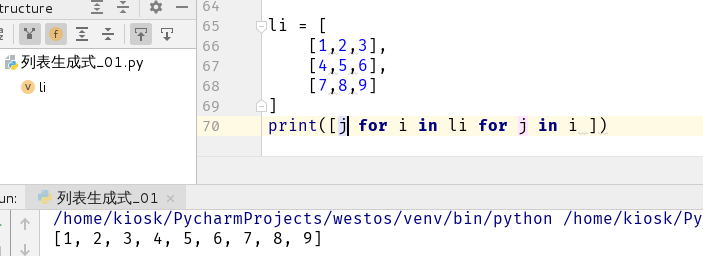List generation
List generation or list parsing
Format:
[expression for i in sequence ]
Topic 1
Generate a list with the square of 1-N [1 * * 2,2 * * 2,3 * * 2,4 * * 2,..., n * * 2]
General method:
li = []
for i in range(1,11):
li.append(i**2)
print(li)
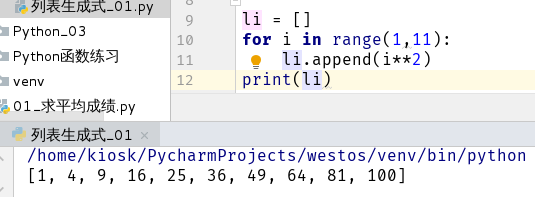
List generation:
print([i ** 2 for i in range(1,11)])

The form of adding if judgment condition
Format:
[expression for i in sequence if...]
Topic 1
Generate a list of all even numbers between 1 and 10
General method:
li = []
for i in range(1,11):
if i %2 == 0:
li.append( i**2 )
print(li)
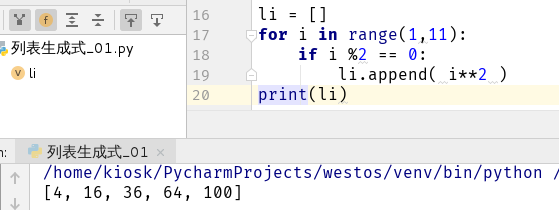
List generation:
print([i ** 2 for i in range(1,11) if i %2 == 0])

Topic two
Find all the even numbers between 1 and 10, and return a list (including the area of the circle with the even radius)
Expression of pi value:
import math a = math.pi print(a)
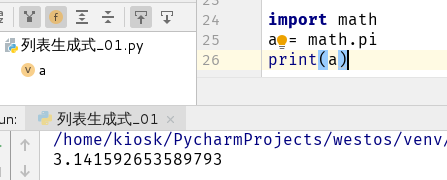
List generation:
import math a = math.pi print([math.pi * i * i for i in range(1,11) if i % 2 == 0])
Topic three
Find out all prime numbers between 1 and num
def isPrime(num):
for i in range(2,num):
if num % i == 0: # Not prime numbers.
return False
else: # Align with for, otherwise the loop is incomplete, and the non prime number will be taken out.
return True
print([i for i in range(2,101) if isPrime(i)])

Topic four
Given a string, the following code is expressed in list generation
s = '51 5000 10000'
li = []
for item in s.split():
li.append(int(item))
print(li)
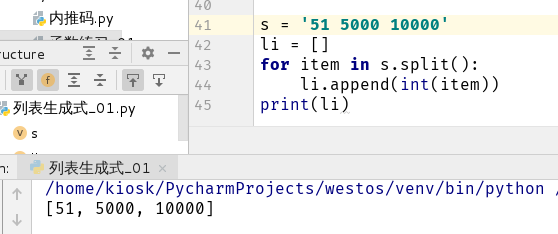
List generation:
s = '51 5000 10000' print([int(item) for item in s.split()])

Topic five
Find out the file ending with. Log in the log / var/log directory and print it out
To import a virtual command line:
import os
print(os.listdir('/var/log'))
 The list generation is implemented as follows:
The list generation is implemented as follows:
import os
print([filename for filename in os.listdir('/var/log') if filename.endswith('.log')])

List generated deformation
s1 = 'ABC'
s2='123'
List of required outputs: A1 A2 A3... C1 C2 C3
List generation:
s1 = 'ABC' s2 = '123' print([i + j for i in 'ABC' for j in '123'])

Given list li, output list is required [1,2,3,4,5,6,7,8,9]
General method:
li = [
[1,2,3],
[4,5,6],
[7,8,9]
]
resultli = []
for i in li:
for j in i:
resultli.append(j)
print(resultli)
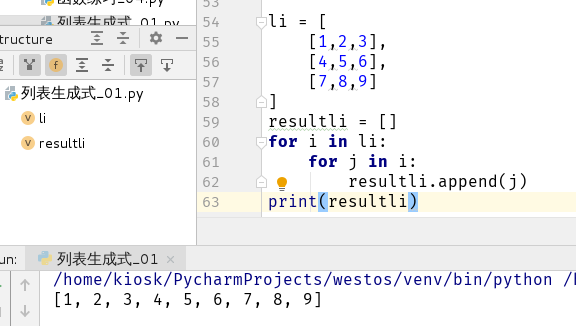
List generation:
li = [
[1,2,3],
[4,5,6],
[7,8,9]
]
print([j for i in li for j in i ])
